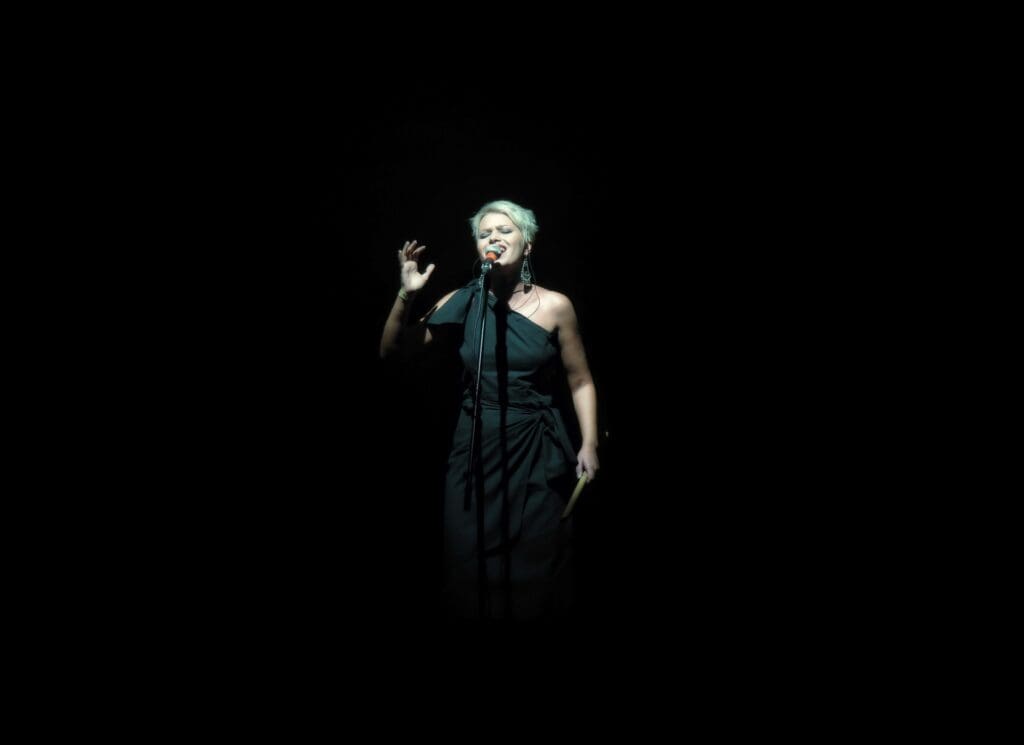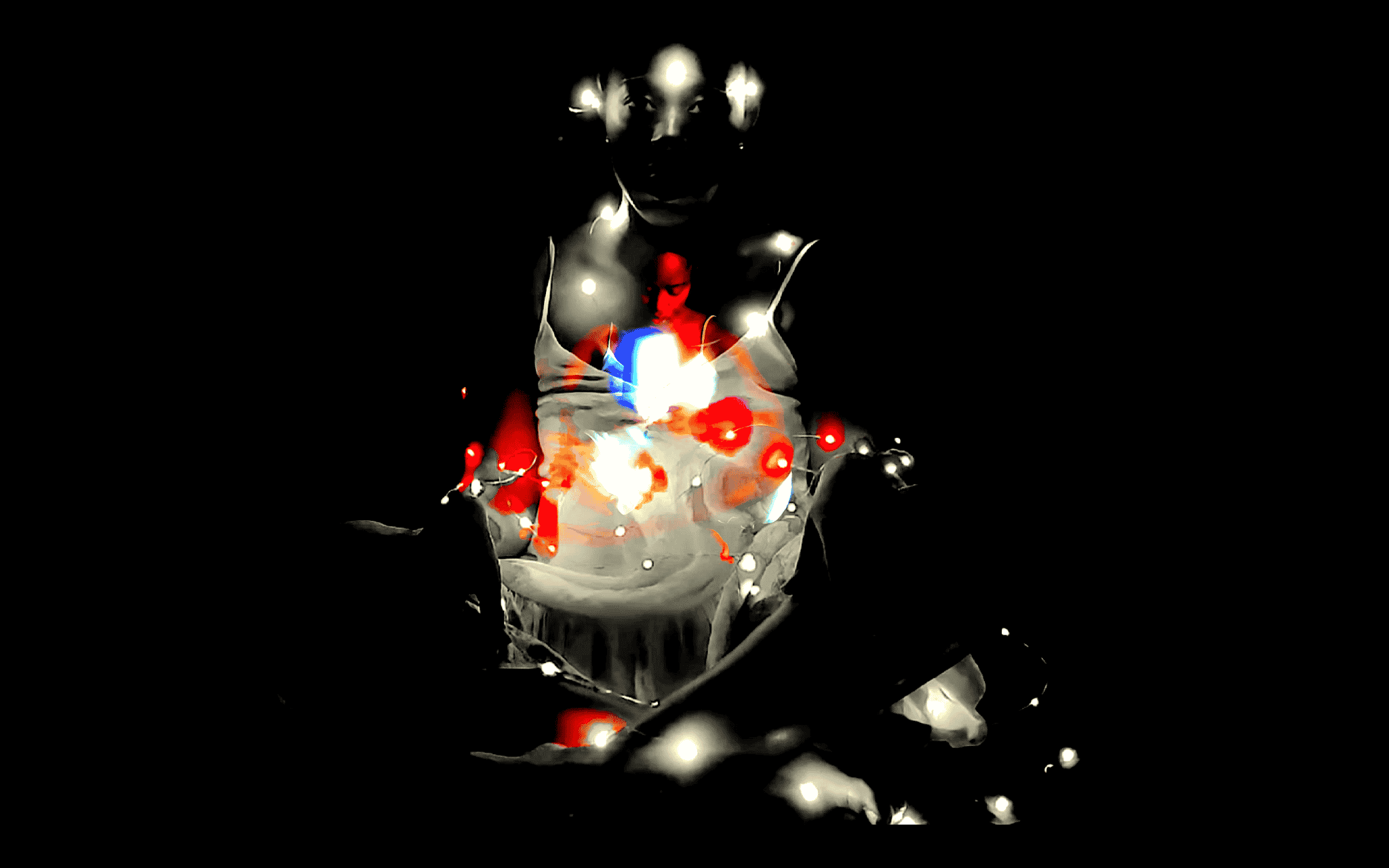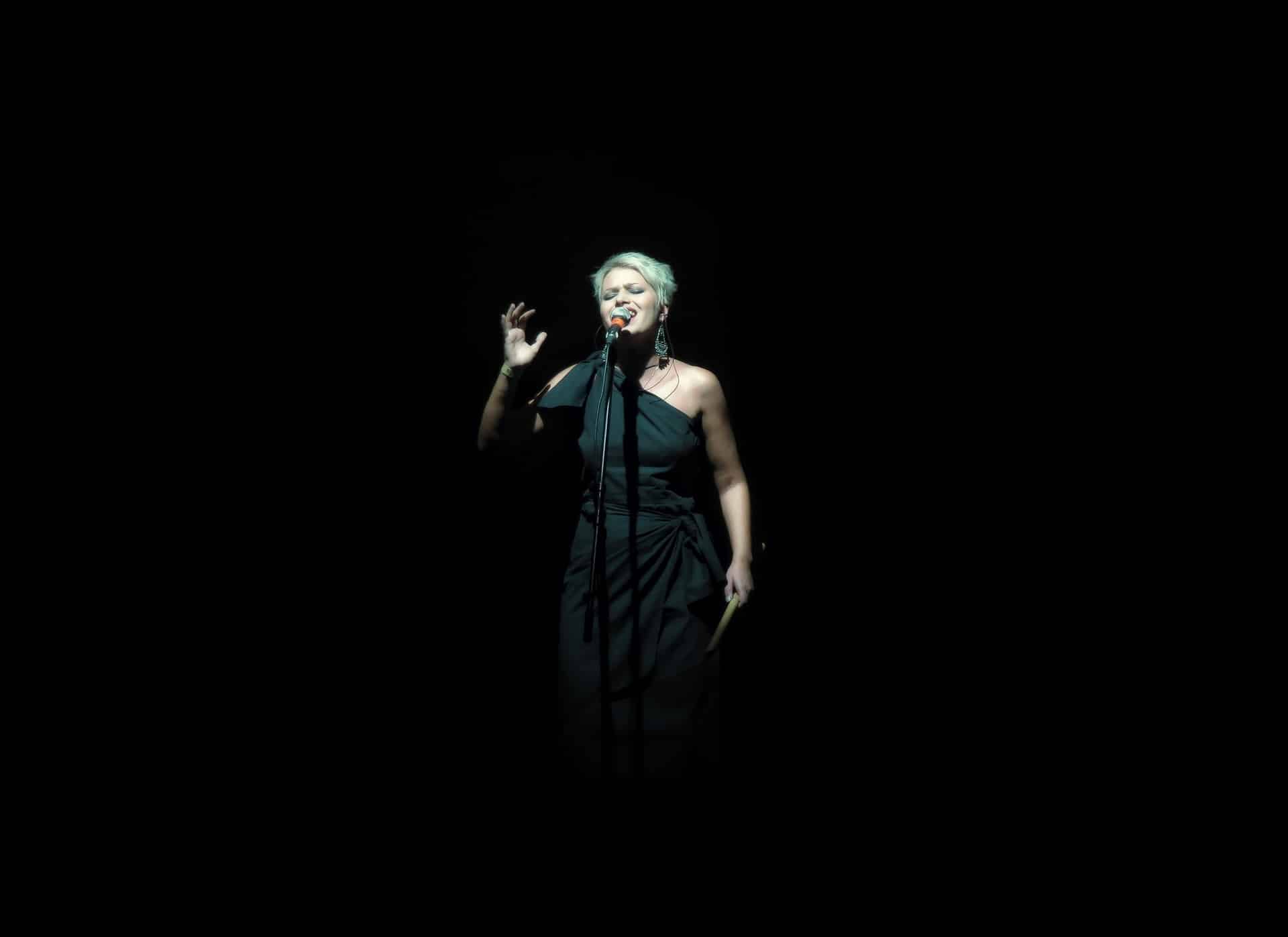The Value of Celebrating Poetic Voice in Middle Age
Author’s Memo
I woke up at 1am last Saturday from a deep sleep, my chest burning, probably from anxiety and the rich food I had at dinner—meds be damned—but my mind was also on fire. There was this pull to wake up and listen to the poetic voice that was muttering to me in feverish tones, even though I’ve been on sabbatical all semester, so the usual work stress was not present. I was tired and sleeping hard and wanted to ignore the early morning interruption.
I tried to meditate myself back to sleep by visualizing a scene from a trail in the Smokey Mountains; one with a chattering stream, sunlight dappling between the Oak and Pine trees, my feet planted in mountain dirt, and a hazy sense of bliss. This did not make my limbs feel heavy or ready to release tension as it usually does.
In that space between deep sleep and alertness, I was ruminating on voice and poetry and could not make the furious thoughts stop. I knew I should get up and write down what was streaming inside my mind, but I wanted to sleep. Surely, I would remember things in the morning. (Of course, I never remember the phrasing of night thoughts or lines of poetry in the morning).
“Here it is NaPoMo, I’m executive poetry editor at The AutoEthnographer tasked with championing poetry, and I was not writing. As if that wasn’t enough, I was supposed to be writing a feature on voice in poetry, and I was mute.
I counted backwards from 9, 999. Around 8000, I stumbled around in the dark for something to write on and found the paper calendar that I had bought at the beginning of the year but had not used. I was spurred on by thinking about a presentation I was to give on everyday creativity and the connection to creative research methods in a few days. And I had not begun to put together my non-existent thoughts, and here was my mind writing the presentation in my sleep.
I also considered the fact that April is National Poetry Month, and I had not written a single poem. And the embarrassing truth is that I had not written a poem this year. Here it is NaPoMo, I’m executive poetry editor at The AutoEthnographer tasked with championing poetry, and I was not writing. As if that wasn’t enough, I was supposed to be writing a feature on voice in poetry, and I was mute.
So, I scribbled a few pages of what was going on in my mind. In the dark. I didn’t want to turn a light on and wake up fully. After a page, I put the calendar down and tried to sleep.
No luck. Words and phrases were still ramming into my conscious mind demanding an audience. I reached beside the bed for the calendar and wrote some more.
This cycle occurred a few more times before I could make the voice stop and go to sleep.
“I wrote three poems. They may be mediocre. They may be decent. But the fact is that this was a way for me to think about poetic voice, how my ideas of voice and how to achieve these ideals are changing/clawing/charging the way through middle age.”
Two days after, I opened the calendar afraid that the thoughts that had seemed urgent, important, and possibly insightful, would be illegible or worse, mediocre. I sat in a coffee shop on the boardwalk in Ocean City, NJ watching the wind rustle grass in the sand dunes and whip up waves. The scenery stirred that poetic voice I had missed, the one that woke me up from a deep sleep and demanded I pay attention. I wrote three poems. They may be mediocre. They may be decent. But the fact is that this was a way for me to think about poetic voice, how my ideas of voice and how to achieve these ideals are changing/clawing/charging the way through middle age.
The reason I shared this story is that it is all about voice (and a reminder that you should always have a pen and paper by the bed). We often tell students to write what they know. This advice is meant to help them find their voice, to find a way into story and to trust that what they say is worthwhile. The problem for me lately is that I’m not sure that poetic voice is a static thing that one finds. I’m not sure nurturing voice like it is a needy newborn is the right metaphor, either. I spent my 30s trying to find a poetic voice that was not like the stale academic one I had learned in graduate school and one that was not like the earnest, fragile, and raw one from my 20s (Faulkner, 2020). And I spent my 40s polishing that voice with poems in form, poems that functioned as poetry and as research (Faulkner, 2021), and poems that incorporated images and visual art forms to push what language can do and reach beyond the page (see https://theautoethnographer.com/collage-and-erasure-poems-baby/).
“I see the emergence of a different voice, one that is not polished but one that is also not earnest in the way that new voices can be. It seems that perhaps poetic voice can be fractured, multiple, and singular all at the same time. Voice is multiple and engaging, angry and funny, intuitive and rational.
Now in my early 50s, I am thinking about poetry and voice deeply. Sure, the poems that I wrote in the coffee shop in New Jersey are based on what I know, but they are also a reaching for something more, something just beyond the horizon. I see the emergence of a different voice, one that is not polished but one that is also not earnest in the way that new voices can be. It seems that perhaps poetic voice can be fractured, multiple, and singular all at the same time. Perhaps voice is something that furiously wakes you up at 1 am. It is also the whisper of something you once knew, forgot, and is fluttering back to you. Voice is multiple and engaging, angry and funny, intuitive and rational.
I offer the following five poems to you. I hope that when you read/hear them you see a way into your own stories and ideas of poetic voice.

On the precipice of their 50th birthday, the overachiever realizes it’s too late to fuck up
to drop the biscuit
and take up with someone 20 years younger
smoke in the tub smoke during dinner smoke in bed
make salad with the carrots of so many obligations
quieten the domestic din with a solo ride
wherever the hell they want
no whining or neat packaged snacks allowed
and
quit the gym forgo the extra helping of greens
throw out the map of knowing
torch the considered plans with the lighter
they stole from the corner convenience store
in a town they’ve never been
and also
forget to pick up the kids from school
ignore the pleas for every piece of themselves
skip the team training to get too drunk
the liquor burn the slur of memory
then
hit on the hot dean
punch the colleague who asked them to make coffee
in a professional meeting piss on the pretention and preening
teach students off the record
blow up the learning objectives withered assessments
with youthful verve the smirk of a smart aleck
because
they can’t tell that younger self the fracture
of their personas the rejections of face
will soften and mold to their frame
like lying in some unreturnable overpriced bed
The overachiever surveys their wall of trophies and wonders what’s the point
When their yule log cake unrolls on the serving platter
like it gave up carbs
and still can’t do ten decent sit-ups
When their 13-year-old can’t hear them over the screech
of pop culture the YouTube videos
the mediocrity of the mundane more interesting
than a middle-aged woman with their signature contributions
When they read that being healthy at 50
means 23 more years of good working and only 8 years of disability
they speculate they have 21 more years of being brainy
before they become too old crumble like a desperate academic
into the rubble of discarded templates outmoded theories worn-out syllabi
their tread one drive away from a blow-out
When they can’t numb the self cut off years by drinking all the alcohol
Mimosas at sunrise bottles of pinot noir at noon Manhattans every day at 4
because they know too much refuse to be sober curious
because there is no award for their crystalized intelligence their social cognition
improving their self fitting in not stirring it up using the model
being the prototype of aging well
During National Poetry Month, the overachiever chokes
and can’t write a single line
no poems about parents that don’t understand youth and rage
feelings strung so tight they shoot from the mouth like a rubber band
ricochet back find all the soft spots the bristly edges
their parents’ concerns are too far away memories of their other life
the time before children more present than what they had for breakfast
and
no poems about motherhood because their teen needs privacy
no writing about the low thrum of fear in the school drop-off line
not just the cars that swerve out of order parents too precious to wait their turn
but the sickness in a country where kids are like clay pigeons
shot up for target practice the price for America’s masculinity problem
and
no poems about writer’s block or middle-aged insomnia
wanting to sleep needing to wake up having to sandwich
between work and home parents and kid love and obligation
the little pieces of them strewn through time and place impossible to describe
the feel of life as numb as the space before and after this present middle
because
When the overachiever tries to write about middle age, they realize that no one cares
When they wake up at 1am burning with poetic thoughts, the overachiever realizes that they are a cliché
they are not crushing middle age
or any other violent metaphor no making 50 the new 30
tackling the day with a girlish stride meditating away the hot flashes of youth
though they use a treadmill desk balance on one foot while brushing their teeth
walk their dogs three times a day floss like a boss and always wear a helmet
the tweaks of their middle age maladies are boring staid (yawn)
the horizon of old age no longer endless like the ocean view
but more like a human-made hill by the hospital in a flat town
the hip coffee shop playing dance music from their 20s
where the kids wear the recycled fashion from back when they were cute
too many years ago to remember the feel of the beats
their voice singing along the angst the earnest feel of emotion
so now waking up at after midnight with chest burning raw terror
thinking thoughts so large they refuse to stop
this must be poetry angsty proof that their still relevant
but most likely this is the sting of anxiety the revenge of heart burn
the reflux of work that no meds can fix
past anxieties and future anxieties of being enough
Credits
The poem, On the precipice of their 50th birthday, the overachiever realizes it’s too late to fuck up, first appeared in Heroin Chic.
Faulkner, S. L. (2021). Buttered Nostalgia: Feeding My Parents during #COVID19. Journal of Social and Personal Relationships, 38(6), 1877-1900. https://journals.sagepub.com/doi/10.1177/02654075211012478
Faulkner, S. L. (2020). Poetic Inquiry: Craft, Method, and Practice, 2nd ed. Routledge.
Photo of woman singing by Alexandr from Pixabay
Learn More
New to autoethnography? Visit What Is Autoethnography? How Can I Learn More? to learn about autoethnographic writing and expressive arts. Interested in contributing? Then, view our editorial board’s What Do Editors Look for When Reviewing Evocative Autoethnographic Work?. Accordingly, check out our Submissions page. View Our Team in order to learn about our editorial board. Please see our Work with Us page to learn about volunteering at The AutoEthnographer. Visit Scholarships to learn about our annual student scholarship competition.
Sandra L. Faulkner is professor of communication at Bowling Green State University where she writes, teaches and researches about close relationships. Her interests include qualitative methodology, poetic inquiry, and the relationships among culture, identities, and sexualities in close relationships. Her research focuses on how individuals navigate gender and sexuality through interpersonal communication and personal narrative. She often uses poetry, creative nonfiction, and autoethnography to explore her own negotiation of identity as a parent, partner, and professor. She received the 2013 Knower Outstanding Article Award from the National Communication Association, the 2016 Norman K. Denzin Qualitative Research Award, and the 2020 Trujillo and Goodall “It’s a Way of Life Award” in Narrative Ethnography. https://www.sandrafaulkner.online/ and https://bgsu.academia.edu/SandraFaulkner















